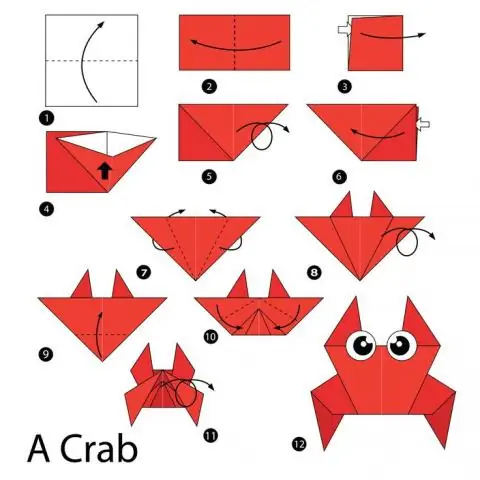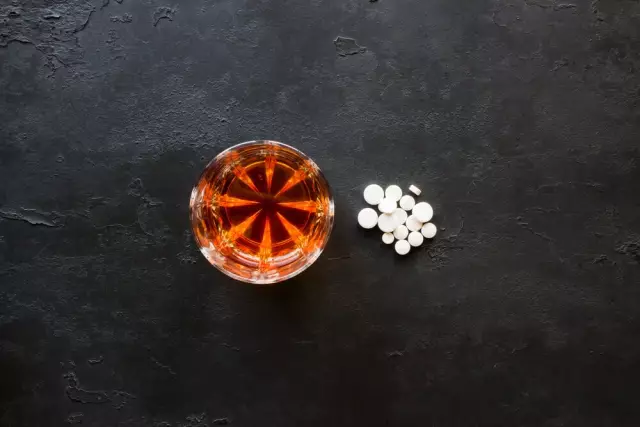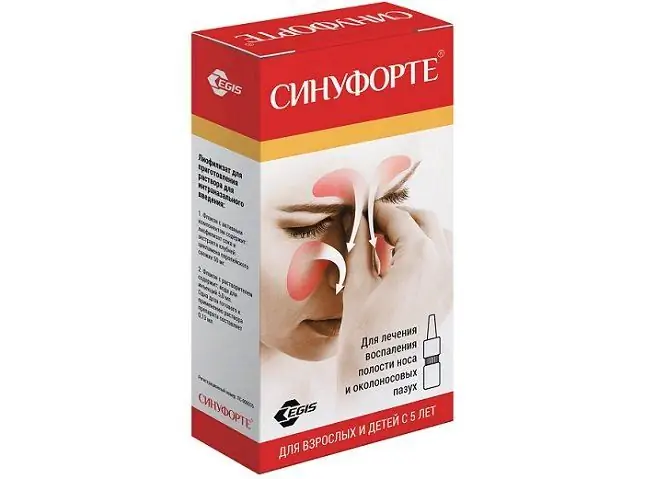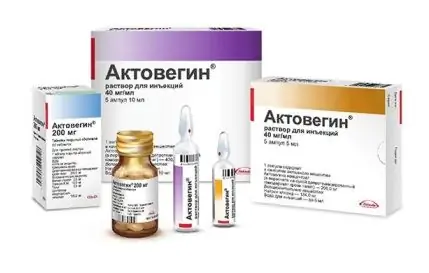- Author Rachel Wainwright wainwright@abchealthonline.com.
- Public 2023-12-15 07:39.
- Last modified 2025-11-02 20:14.
Riboxin bufus
Riboxin bufus: instructions for use and reviews
- 1. Release form and composition
- 2. Pharmacological properties
- 3. Indications for use
- 4. Contraindications
- 5. Method of application and dosage
- 6. Side effects
- 7. Overdose
- 8. Special instructions
- 9. Application during pregnancy and lactation
- 10. Use in childhood
- 11. In case of impaired renal function
- 12. Drug interactions
- 13. Analogs
- 14. Terms and conditions of storage
- 15. Terms of dispensing from pharmacies
- 16. Reviews
- 17. Price in pharmacies
Latin name: Riboxin bufus
ATX code: C01EB
Active ingredient: inosine (Inosine)
Producer: JSC PFC Obnovlenie (Russia)
Description and photo update: 2019-08-07
Prices in pharmacies: from 42 rubles.
Buy
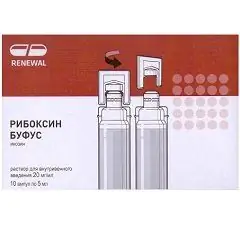
Riboxin bufus is a drug to stimulate metabolic processes, has antiarrhythmic and antihypoxic effects.
Release form and composition
The drug is available in the form of a solution for intravenous (i / v) administration: a transparent, slightly colored or colorless liquid (5 or 10 ml in polymer ampoules, in a cardboard box of 10 or 100 ampoules and instructions for use of Riboxin Buffus).
1 ml of solution contains:
- active substance: inosine (riboxin) - 20 mg;
- auxiliary components: methenamine (hexamethylenetetramine), sodium hydroxide (1 M sodium hydroxide solution), water for injection.
Pharmacological properties
Pharmacodynamics
Riboxin bufus is a drug used to stimulate metabolic processes, including in the treatment of heart diseases. It has antihypoxic and antiarrhythmic effects. The active ingredient of the drug is inosine (riboxin), a purine derivative, a precursor of adenosine triphosphate (ATP). Penetrating into cells, inosine has a positive effect on metabolic processes in the myocardium, increasing its energy balance. As a result of an increase in the strength of heart contractions and a more complete relaxation of the myocardium in diastole, the stroke volume increases. The substance is directly involved in glucose metabolism, activates metabolism under hypoxic conditions and in the absence of ATP, improves coronary circulation, activates xanthine dehydrogenase, and prevents the consequences of intraoperative renal ischemia.
The drug activates the metabolism of pyruvic acid, normalizes the process of tissue respiration, intensifies the synthesis of nucleotides, and increases the activity of certain enzymes of the Krebs cycle.
It causes a decrease in platelet aggregation, increases the regenerative capacity of myocardial tissues, the mucous membrane of the gastrointestinal tract and other tissues.
Pharmacokinetics
Inosine metabolism occurs in the liver. As a result, glucuronic acid is formed, which undergoes subsequent oxidation.
It is excreted through the kidneys in a small amount.
Indications for use
The use of the drug is indicated in the complex therapy of ischemic heart disease, myocardial infarction, cardiac arrhythmias caused by the intake of cardiac glycosides, in myocardial dystrophy caused by infectious diseases, and also as a means of pharmacological protection when the blood circulation is turned off during operations on an isolated kidney.
In addition, indications for the use of Riboxin bufus are liver diseases (cirrhosis, hepatitis, fatty degeneration) and urocoproporphyria.
Contraindications
Absolute:
- hyperuricemia;
- gout;
- period of pregnancy;
- breast-feeding;
- age up to 18 years;
- hypersensitivity to the components of the drug Riboxin bufus.
Inosine should be used with caution in patients with renal insufficiency.
Riboxin bufus, instructions for use: method and dosage
A solution of Riboxin bufus in ampoules is used intravenously by slow jet or drip.
The infusion rate should not exceed 40-60 drops per minute.
For drip administration, the prescribed dose of the drug should be diluted in no more than 250 ml of isotonic sodium chloride solution or 5% dextrose (glucose) solution.
Recommended dosage: initial dose - 200 mg (10 ml) once a day. With good tolerance, the dose is then increased to 400 mg (20 ml) 1-2 times a day. The duration of the course of treatment is 10-15 days.
In acute cardiac arrhythmias, intravenous jet injection of the drug in a single dose of 200-400 mg is possible.
In surgical intervention for pharmacological protection of the kidney subjected to ischemia, the solution is injected intravenously in a stream 5-15 minutes before the renal artery is clamped in a single dose of 1200 mg (60 ml). Then, immediately after the restoration of blood circulation, the patient is additionally injected with 800 mg (40 ml) of riboxin solution.
Side effects
- possible: the development of allergic reactions in the form of itching, hyperemia, urticaria;
- rarely: against the background of prolonged use - exacerbation of gout, increased levels of uric acid in the blood.
Overdose
Overdose symptoms have not been established.
special instructions
If symptoms of allergic reactions (itching, hyperemia) appear, the drug should be discontinued immediately.
Application during pregnancy and lactation
It is contraindicated to use Riboxin bufus during gestation and breastfeeding.
Pediatric use
The efficacy and safety of using the drug for the treatment of children and adolescents has not been established, therefore it is contraindicated to prescribe Riboxin to patients under 18 years of age.
With impaired renal function
If there are indications for use, Riboxin bufus should be used with caution in patients with renal insufficiency.
Drug interactions
With the simultaneous use of the drug Riboxin bufus with other drugs, no interaction was detected.
Analogs
Riboxin bufus analogs are: Riboxin, Riboxin-Vial, Riboxin-Ferein, Riboxin-LekT, Riboxin Avexima, Inosie-F, Inosin, Inosin-Eskom, etc.
Terms and conditions of storage
Keep out of the reach of children.
Store at a temperature of 15-25 ° C in a dark place.
The shelf life is 3 years.
Terms of dispensing from pharmacies
Dispensed by prescription.
Reviews about Riboxin bufus
There are currently no doctors or patients about Riboxin bufus.
The price of Riboxin bufus in pharmacies
The price of Riboxin bufus in ampoules (10 pcs per pack) can be 51-72 rubles.
Riboxin bufus: prices in online pharmacies
|
Drug name Price Pharmacy |
|
Riboxin bufus 20 mg / ml solution for intravenous administration 5 ml 10 pcs. 42 RUB Buy |
|
Riboxin bufus 20 mg / ml solution for intravenous administration 10 ml 10 pcs. RUB 60 Buy |

Anna Kozlova Medical journalist About the author
Education: Rostov State Medical University, specialty "General Medicine".
Information about the drug is generalized, provided for informational purposes only and does not replace the official instructions. Self-medication is hazardous to health!

